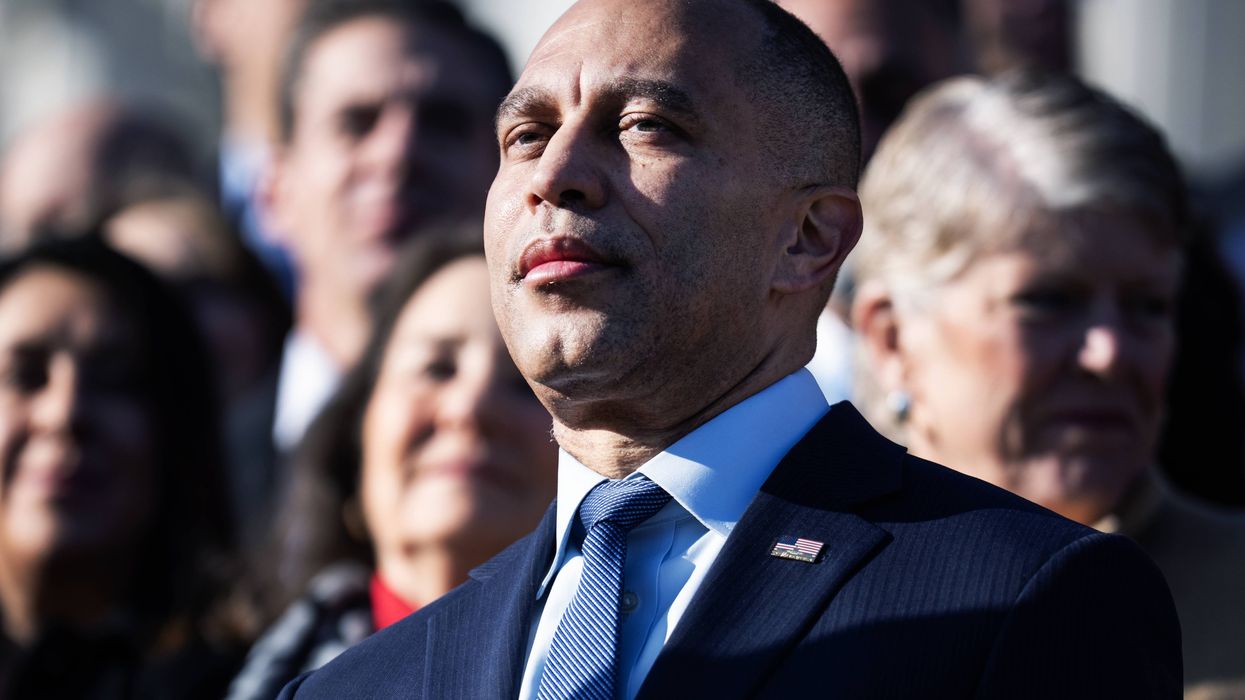February, 21 2021, 11:00pm EDT

For Immediate Release
Contact:
Diana Lopez, 210-535-7060, swujustice@gmail.com, 301-613-4767, olivia@climatejusticealliance.org
Climate Justice Alliance Demands Energy Democracy & Just Recovery for Millions Abandoned Without Power & Water
In the midst of a raging global pandemic, a slew of winter storms exacerbated by extreme cold painfully highlights the need to truly acknowledge water, power, housing and access to medical care as basic human rights. The lack of community control and governance of our infrastructure has created one of the most extractive systems in our society and the result, in this case over the past week, is millions of people without power, without access to water or safe drinking water, without food, and exposed to the elements and possibly COVID-19, as many crowd into warmer spaces.
WASHINGTON
In the midst of a raging global pandemic, a slew of winter storms exacerbated by extreme cold painfully highlights the need to truly acknowledge water, power, housing and access to medical care as basic human rights. The lack of community control and governance of our infrastructure has created one of the most extractive systems in our society and the result, in this case over the past week, is millions of people without power, without access to water or safe drinking water, without food, and exposed to the elements and possibly COVID-19, as many crowd into warmer spaces.
After 40+ states were hit from Texas to Oregon by an extreme weather event, Climate Justice Alliance members and their communities continue reeling from COVID-19, job loss, and evictions, among other challenges. Far too many people have died and hundreds more have been hospitalized, as Indigenous, Black, Latinx, Asian and other frontline communities once again remain the hardest hit.
"Our neighbors are burning furniture to stay warm amidst widespread power outages in this arctic weather event, fueled by the climate crisis. The Texas power grid relies on dirty energy and has failed the people,"says Diana Lopez, Executive Director of Southwest Workers Union.
"We need to prioritize a Just Recovery and Transition to a modern, regenerative, and renewable energy system, one that is clean and safe for us all, that prioritizes community needs and equity rather than profiting off climate chaos. Our communities are ready to lead that shift."
The blackouts and water cut-offs are a result of extreme privatization and deregulation of our energy system, extreme weather events supercharged by climate change, environmental racism, and the dominance of fossil fuel companies within politics and government. We need to hold the perpetrators accountable not look to them for more of the same.
Lies about renewable energy run by right wing activists and fossil fuel fanatics are distracting us from the real perpetrators: the fossil fuel industry, privatization, and big corporations who have no reservations about dodging regulations and sacrificing our communities. We need to make an accurate assessment of what went wrong and who is responsible, hold them accountable, and ensure systemic changes to prevent this from happening again. Local San Antonio communities are calling for an audit of CPS Energy's response as a starting point.
Black, Indigenous, and people of color communities most impacted need to be centered in the Just Recovery to shift from dirty energy - natural gas, oil, coal, and nuclear being the culprits in Texas - to clean, renewable energy sources.
"Living in the belly of the beast, our Houston communities have documented the disproportionate impacts suffered from the pollution of local refineries and seen firsthand how the profits of fossil fuel industries are placed over the needs of the people. The privatization of the Texas energy grid and the disaster we are facing now is an extension of and further evidence of that environmental racism. We must hold them accountable, support a Just Recovery for our communities most impacted, and ensure a Just Transition to clean, renewable energy sources for all." Juan Parras, Executive Director of t.e.j.a.s.
Solutions like the THRIVE agenda, Build Back Fossil Free, and A People's Orientation to a Regenerative Economy spell out a path toward Just Recovery, a Just Transition to local, living economies, and job creation. We know that community-governed and local renewable energy systems and projects are better able to meet demands and stay resilient in the face of increasing climate disasters. Officials, especially at the local and state levels, must:
- Prioritize and center Black, Brown, Indigenous, Asian and Pacific Islander, and other frontline communities in decisions on energy supply and distribution.
- Eliminate gas, water, and electric cutoffs as policy for nonpayment for those in crisis due to impacts from the pandemic and in times of climate disasters, and permanently for those at or below 200 percent of federal poverty guidelines.
- Create and invest in decentralized, regenerative energy micro-grids for emergencies that can be counted on to provide critical needs during times of disaster.
- Make the grid a Public Utility by creating mechanisms for local governance of energy systems integrated into a public grid, without privatization.
- Build out resiliency within grid models through modernization and efficiency through community-governed microgrids; research new technology to modernize the grid to prioritize decentralized renewables and support resilient systems that include storage, conservation, and efficiency.
- Ensure energy systems prioritize low-income communities for decreased energy bills and deep energy efficiency retrofits as well as green building standards that minimize energy use and support passive housing designs.
- Recognize energy as a public good by publicly taking over investor-owned utilities that fail to commit to transition from fossil fuels, fail to address the climate crisis adequately, or seek bailouts and enact rate-hikes. Give workers and communities oversight of public takeovers, and call for liquidation of assets that can be utilized to invest in renewable energy.
- Extend an eviction moratorium through these multiple crises of pandemic and climate disaster, and focus on the rehousing of houseless and vulnerable populations.
- Implement fair housing recovery that fixes discriminatory inequities in disaster housing assistance and long-term housing recovery. Codify enforceable federal standards, rules, and procedures for prioritizing low-income homeowners, renters, and unhoused people in the allocation of housing aid and recovery resources, with a particular focus on long-term housing recovery programs.
Investments need to be made directly to the grassroots and community-run initiatives, not to market-based solutions, big greens, or silver-bullet techno-fixes.
We call on philanthropy to:
- Invest in grassroots organizations and mutual aid networks directly (like these in Texas), prioritizing those led by and supporting Black, Indigenous, and people of color communities.
- Hold billionaires and corporate energy companies accountable and prevent bailouts using taxpayer dollars.
- Create local funds to support weatherizing homes, fixing residential water pipes, and updating home electrical systems to support extreme weather.
- Establish local ongoing emergency short term and immediate funding vehicles for workers who have suffered loss of wages due to transportation issues, closures, as well as for other unanticipated costs in times of disaster and crises.
- Support just and equitable recovery funding by increasing funding and resources to support community-driven recovery and mid- to long-term rebuilding and implementation projects with improvements that further equitable mechanisms for adaptation, recovery, and rebuilding.
- Invite grassroots leaders to engage in a long-term evaluative process to integrate an equity lens into institutional grantmaking practices.
- Use tools like the People's Solutions Lens to better understand where you are investing - not all "solutions" are inherently equitable or just.
As frontline communities work to rebuild and repair, we don't need billionaires, white-led big greens, and philanthropic institutions swooping in to "save" our communities by funneling hundreds of millions into outdated, ineffective, top-down strategies that erase the frontlines, waste money, and don't address the root causes of the climate crisis. In order to break this ineffective, status-quo, self-serving, extractive "charitable" cycle and ensure systemic change led by those most impacted, we must invest in and follow the lead of grassroots, frontline communities.
Climate Justice Alliance (CJA) formed in 2013 to create a new center of gravity in the climate movement by uniting frontline communities and organizations into a formidable force. Our translocal organizing strategy and mobilizing capacity is building a Just Transition away from extractive systems of production, consumption and political oppression, and towards resilient, regenerative and equitable economies. We believe that the process of transition must place race, gender and class at the center of the solutions equation in order to make it a truly Just Transition.
(202) 455-8665LATEST NEWS
Democrats to Spotlight Trump Election Threats at January 6 Hearing
A panel aimed at fighting GOP efforts to "rewrite history" regarding the US Capitol attack will also "examine ongoing threats to free and fair elections posed by an out-of-control Trump administration."
Dec 30, 2025
At a hearing on the fifth anniversary of the January 6, 2021 attack on the US Capitol next week, House Democrats plan to look back as well as forward—countering Republicans' efforts to "rewrite history and whitewash" the attempted insurrection by President Donald Trump's supporters and warning of the GOP's threats to upcoming elections and to US democracy.
The event next Tuesday will be an unofficial one, as Democrats are in the minority and do not have the authority to call formal hearings.
House Minority Leader Hakeem Jeffries (D-NY) said in a Dear Colleague letter to other lawmakers on Monday that the hearing would shed light on the "toxic priorities" of Trump, who after taking office in January issued blanket pardons for nearly 1,600 people who were charged in connection to the January 6 attack.
" Donald Trump promised to lower the high cost of living on day one of his presidency," wrote Jeffries. "One year later, costs are out of control, America is too expensive, and Republicans believe that the affordability crisis is a hoax. They have done nothing to lower costs for everyday Americans, but are gutting healthcare and enacted massive tax breaks for their billionaire donors."
While doing nothing to make life more affordable for families—and helping to make household grocery and electricity bills higher—Trump has pardoned hundreds of people who "brutally assaulted law enforcement officers" on January 6, including several who have been charged with new crimes and "a troubling number" who "have been arrested for child molestation, sexual assault, and kidnapping," said the Democratic leader.
"Republicans own the failed economy, their broken promise to lower costs, and the crime spree the dangerous criminals pardoned by the president have visited on our country," wrote Jeffries.
The mob on January 6 attempted to stop the certification of the 2020 election, which Trump had spent weeks at that point insisting had been stolen from him and which the president and his allies continue to deny was won by former President Joe Biden.
But Republicans including House Speaker Mike Johnson (R-La.) have made efforts to sanitize the attack, which took place after Trump held a rally urging his supporters to march "over to the Capitol building to peacefully and patriotically make your voices heard" and said they would see whether "Republicans stand strong for integrity of our elections."
After Trump took office this year, Johnson announced a new congressional subcommittee that would expose "the false narratives peddled by” the previous bipartisan panel that issued a report in 2022 about Trump's efforts to overturn the 2020 election results and his encouragement of the attack.
Rep. Bennie Thompson (D-Miss.), who led the bipartisan committee, will also oversee next Tuesday's hearing.
In addition to exposing "the election deniers who hold high-level positions of significance in the executive branch," wrote Jeffries on Monday, the panel "will examine ongoing threats to free and fair elections posed by an out-of-control Trump administration."
The president has pushed Republican-led state legislatures in Texas, Missouri, North Carolina, and other states to draw new congressional maps to help the GOP maintain power in the 2026 midterm elections.
He signed an executive order in March that purported to require proof of citizenship for people who register to vote—an effort that was blocked by a federal judge in October—and the US Department of Justice has sued several states to compel them to share voter registration data with the federal government.
Legal experts have emphasized that the president does not have the authority to change how elections are run, despite Trump's continued efforts.
Jeffries said the January 6th Select Committee would join Thompson in leading the hearing, which is scheduled for 10:00 am Eastern time next Tuesday.
Keep ReadingShow Less
'This Is an Act of War': CIA Carried Out Drone Strike on Port Facility Inside Venezuela
One expert called the reported drone strike a "violation of Article 2(4) of the UN Charter and the Take Care Clause of the Constitution."
Dec 30, 2025
The US Central Intelligence Agency reportedly carried out a drone strike earlier this month on a port facility inside Venezuela, marking the first time the Trump administration launched an attack within the South American country amid a broader military campaign that observers fear could lead to war.
CNN on Monday was first to report the details of the CIA drone strike, days after President Donald Trump suggested in a radio interview that the US recently took out a "big facility" in Venezuela, prompting confusion and alarm. Trump authorized covert CIA action against Venezuela in October.
According to CNN, which cited unnamed sources, the drone strike "targeted a remote dock on the Venezuelan coast that the US government believed was being used by the Venezuelan gang Tren de Aragua to store drugs and move them onto boats for onward shipping."
To date, the Trump administration has not provided any evidence to support its claim that boats it has illegally bombed in international waters were involved in drug trafficking. No casualties were reported from the drone strike, and the Venezuelan government has not publicly commented on the attack.
"This is an act of war and illegal under both US and international law, let’s just be clear about that," journalist Mehdi Hasan wrote in response to news of the drone strike.
Brian Finucane, senior adviser with the US Program at the International Crisis Group, called the reported drone attack a "violation of Article 2(4) of the UN Charter and the Take Care Clause of the Constitution."
"Seemingly conducted as covert action and then casually disclosed by POTUS while calling into a radio show," he added.
CNN's reporting, later corroborated by the New York Times, came after the Trump administration launched its 30th strike on a vessel in international waters, bringing the death toll from the lawless military campaign to at least 107.
The Times reported late Monday that "it is not clear" if the drone used in last week's mission "was owned by the CIA or borrowed from the US military."
"The Pentagon has stationed several MQ-9 Reaper drones, which carry Hellfire missiles, at bases in Puerto Rico as part of the pressure campaign," the Times added.
Keep ReadingShow Less
30th Strike in Trump's High-Seas Kill Spree Claims 2 More Lives
At least 107 people have been killed in US bombings of boats that the Trump administration claims—without evidence—were involved in narco-trafficking in the Caribbean Sea and Pacific Ocean.
Dec 29, 2025
The US military said Monday that two alleged drug smugglers were killed in the bombing of another boat in the eastern Pacific Ocean, but—as has been the case throughout 30 such strikes—offered no verifiable evidence to support its claim.
US Southern Command (SOUTHCOM) said on X that, on orders from Defense Secretary Pete Hegseth, "Joint Task Force Southern Spear conducted a lethal kinetic strike on a vessel operated by Designated Terrorist Organizations in international waters."
"Intelligence confirmed the vessel was transiting along known narco-trafficking routes in the eastern Pacific and was engaged in narco-trafficking operations," SOUTHCOM added. "Two male narco-terrorists were killed. No US military forces were harmed."
According to the Trump administration's figures, at least 107 people have been killed in 30 boat strikes since early September. The administration has tried to justify the strikes to Congress by claiming that the US is in an “armed conflict” with drug cartels, while legal scholars and Democratic US lawmakers counter that the bombings are likely war crimes.
War powers resolutions aimed at reining in President Donald Trump’s ability to extrajudicially execute alleged drug traffickers in or near Venezuela failed to pass the Senate in October and the House earlier this month.
Monday's strike came amid Trump's escalating aggression against Venezuela, including the deployment of warships and thousands of US troops to the region, authorization of covert CIA operations targeting the country's socialist government, and threats to launch ground attacks.
Trump claimed Monday without providing evidence that US forces destroyed a "big facility" in an unspecified country where narco-traffickers' "ships come from."
Keep ReadingShow Less
Most Popular


